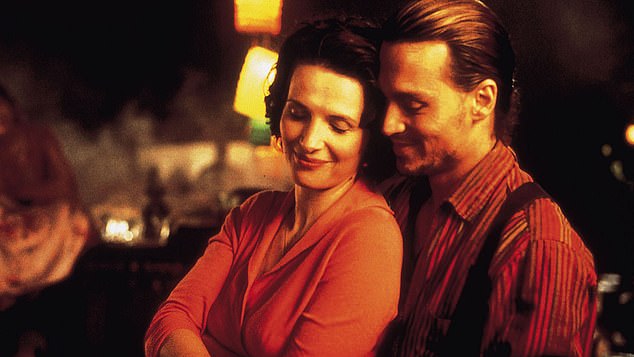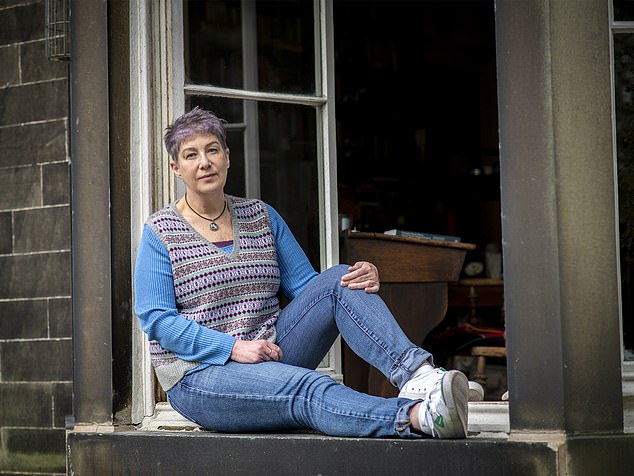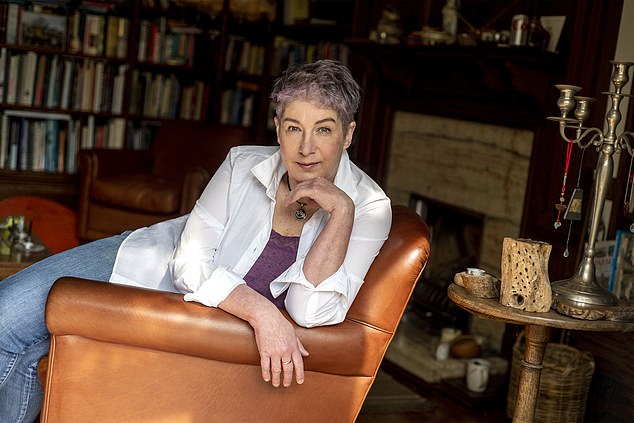When I was a child, someone told me: “Every life is a story.” I wondered what mine would be like, what adventures awaited me.
My favourite stories were from Rudyard Kipling’s The Jungle Book, which my grandfather used to read to me. So I imagined my own story as an adventure in the woods where I would run wild with my friends.
I never imagined I would grow old, just as I never imagined the adults around me would be young. And death, if I ever thought about it, was a monster that lurked in the shadows.
I was four years old when I first encountered the monster. It was in France, when my great-grandmother suddenly fell ill while she and I were playing a game.
I still remember that abruptness, and my mother’s tears, and the various well-intentioned relatives trying in different ways to explain to me why I shouldn’t be sad, that at 65 Mémée was old, that death was natural and that she was looking down on us.
At the age of four I came to the conclusion, with certainty and with singular horror, that I had about sixty years to live before that happened to me. For years I lay awake at night thinking of the monster waiting for me in the dark, and I told myself that sixty years was a very long time.
Author Joanne Harris used to lie awake in the dark as a child and “think about the monster waiting for me in the dark.”
It was then that I decided, with a childlike and implacable logic, that if death was the ultimate monster, then perhaps I could only hope to keep it at bay with stories.
And so I began to tell stories, first to myself, in secret, and then to anyone who would listen. Of course, it took me a long, long time to understand that what I was doing was trying to make sense of the world. In a universe of chaos, stories shape our lives.
I’m now approaching 60. I feel like no time has passed since the night my great-grandmother died. At 60, we’re supposed to examine our lives and think about mortality, which is what I’ve been doing.
This is the advice I would give to my younger self, if I could. Life is like a story with a beginning, a middle, and an end. It is not always as structured or as neat as a story might be, and some are longer than others, but the journey is partly up to us.
We can choose the paths we take, the places we stay. We can choose the people we travel with, the people we make a part of our lives. Choose wisely, I told my younger self at the beginning of my journey; not everyone who seems friendly is a friend.
It’s not easy to find true friends; always value the ones you find. And remember that the journey is more important than the destination. We live in a world where everything seems to be focused on the future: events to plan, deadlines to meet, months and seasons that fly by.
Time seems to speed up as we get older, but there are ways to slow it down. We don’t have to rush through everything to rush through something else. We can live in the moment. Stop. Pick flowers. Feel the sunshine. Remember that we’re only here once, and that every step is a privilege.
These woods are full of obstacles, challenges, and wonders. Not every path is easy. Stay curious, I told myself. Never stop asking questions. Don’t take your accomplishments lightly, and don’t be afraid of failure. Failures are a sign that you tried; signposts on the path to success. And as a teacher for 15 years, one thing I’ve learned is this: There are no teachers, only students. We can learn from every stage of our lives.
Older people can speak from experience, but some of the most important things I’ve learned I’ve learned from younger people. Raising my son has been the lesson of my life; I learn new things from him every day.
So take the lessons you can and give them back to others in kind. And don’t be afraid to make mistakes: mistakes are also part of your story, each one a lesson learned, each one a challenge. You should also not be afraid of the changes that time imposes on us. Change is what drives your story. Sometimes it brings pain and loss; sometimes, unexpected joy.
And don’t be ashamed of the signs of age: in a world where youth is valued far more than experience, it’s all too easy to feel diminished by wrinkles and imperfections. But your body is a living map of everything you’ve been through. Everything leaves marks on you. Childbirth, laughter, hurt, pain. Be proud of those marks. They’re proof that you’ve lived.

Joanne’s great-grandmother Memee was the prototype for Armande in her novel Chocolat. Pictured: Juliette Binoche as Vianne and Johnny Depp as Roux in the film version
When I look at my face now I see the faces of my family. I see my mother, my grandmother. I carry their stories inside me, as tightly coiled as DNA.
I know my great-grandmother above all from the stories my mother told me: the story of the day she died, her life in rural France during wartime, her recipes, her sayings, her jokes. Through the stories, my son can get to know her, even if they have never met. And of course, you know her too: she was the prototype of Armande, the fierce old woman from Chocolat.
Through stories, people can continue to live, be loved and understood. This is one of the things I have learned on my journey through the forest; perhaps the most important: tell your stories.
Now, after many stories, I am reaching that part of the forest where monsters lurk in the darkness. Three years ago, I had an encounter with a monster I called Mr C, an aggressive type of cancer that, luckily, was detected in time.
I survived that encounter thanks to the care and vigilance of the NHS, but one of the lessons it taught me is that life is fragile, precious and short – much shorter than we imagine. I have lost too many loved ones to Mr C in recent years.
Now, at 60, I don’t feel old. I’m more aware of the passage of time. I feel the change of seasons in a way I didn’t before. But my walk in the woods has been beautiful. I’ve fulfilled my greatest dreams.
I do what I love for a living. I have traveled the world, had many adventures, and met many interesting people. I am married to someone I love and who loves me back. I have a son who makes me proud and who I love more than words can express. I have faced monsters and survived. I have learned a lot, sometimes the hard way.

Joanne Harris says that at 60 she is more aware of the passage of time but does not feel old
Despite what I thought at age four, there is nothing to fear as I approach 60. There are still chapters in my story to be written, to be lived; places to discover, new things to learn. I want to climb mountains. Travel through space. See the depths of the ocean. Some of these things I may never know, except in stories, but books are how we live out our many, alternative, possible lives.
I feel like I’m just beginning to understand what matters to me: to find my balance in this vast and bewildering world.
For many years, turning 60 seemed like the end of a journey. Now I see it as just another clearing in the woods. Maybe I’ll sit here for a while. Enjoy the sunshine. Pick the fruit. But soon I’ll be on the road again, collecting stories wherever I go.
I think I’ve spotted a path at the end of the clearing. It’s new and therefore exciting, and it promises adventure. I think I’ll follow it for a while; I’ll see what fruits grow there. Stories bloom along these paths. Let’s see which ones I can find. After all, that’s what I do. And those monsters won’t defeat themselves.
The Moonlight Market by Joanne Harris is out now. Published by Gollancz.


